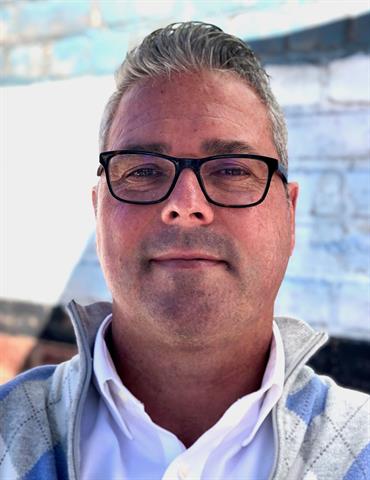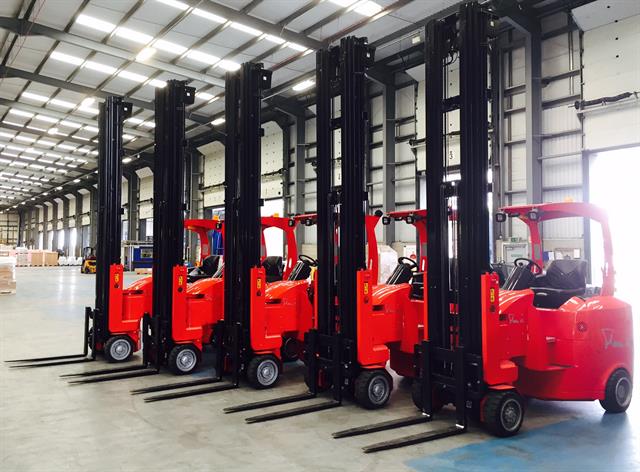 Tom Ryder
Tom RyderTom Ryder is chief commercial officer at TFS, an OnPoint Group Company and the leading provider of brand-independent turn-key materials handling and fleet management services.
We’re all well-versed in the new reality of the troubled supply chain. A growing series of disruptive factors is looming over our warehouses, distribution centres and logistics facilities - threatening our businesses, frustrating our customers, and affecting our livelihoods.
At TFS, we see our clients in the midst of a devastating and unprecedented explosion - an explosion in equipment downtime, triggered by these supply chain disruptions.
And we believe this has been - and will continue to be - one of the make-or-break factors for many of our Fortune 500 client partners. Adequate and thorough positioning is the only way around this looming obstacle, and too few companies are investing the time, manpower and resources in making sure it happens.
Over the last couple of years, as a result of the COVID-19 pandemic and its many ripple effects, equipment manufacturers - including those that support our forklift fleets around the country - have extended their lead times from weeks to months, and beyond. This has made it nearly impossible for even the best facility operators to replace worn and ageing assets - assets that are already overstressed and beyond their lifecycle, due to increased customer demand.
Additionally, aftermarket parts have been incredibly difficult to acquire, leading some companies to take assets offline entirely, using their parts to keep a smaller amount of equipment in working order. These workaround steps cause major facility maintenance issues and unintended consequences.
So, what does a well-positioned company look like? What are industry leaders doing to stay afloat - or even thrive - amidst today’s rampant supply chain challenges? As I see it, there are six key steps these organisations have consistently taken.
- They standardised their equipment asset specs - preferably long ago.
- They have asset details, ages and service histories recorded digitally and nationally.
- They’ve purchased parts and keep them on site at each location, based on their well-kept data.
- They’ve secured expert technicians through a national service and equipment partner.
- Their equipment pre-ordering for new and existing facilities is based on accurately forecasted need.
- They have a consistent maintenance program that provides proof with repair records and recommendations.
 Equipment pre-ordering for new and existing facilities should be based on accurately forecasted need
Equipment pre-ordering for new and existing facilities should be based on accurately forecasted need
The key themes across all six of these actions are pretty simple. When you lower complexity, add more consistency, and heighten accountability across the board, you get stronger results, less downtime and higher returns.
Unfortunately, the typical forklift fleet is not managed in this way. Because of the complex relationship management which is needed to keep all assets operating effectively, and considering how this complexity multiplies with each additional facility, the natural result is a lack of consistent processes and accountability, adding more strain to budgets, daily operations, and safety standards.
This is exactly the situation for a Fortune 50 brand I recently worked with. One of the company’s facilities was caught in what I call the “doom loop” of CAPEX equipment. Despite skyrocketing demand, the necessary equipment just couldn’t be found. As their equipment wait times stretched on and on, their existing assets continued to age, and deteriorated even further as a result of overuse. The outcome? OPEX exploded, rental costs increased, downtime went up and up, and safety risks added to the mess. This client, despite its prestige and position as a trusted and beloved American brand with a massive national footprint, had no clarity on the assets it owned, their age, or the shape they were really in. This was a devastating situation for the company, especially when you consider that this slew of problems are multiplied exponentially across dozens of their US facilities.
To avoid the fate of this brand, and the myriad others like it in today’s distribution marketplace, action is needed today. And the good news is that you don’t have to do this alone. It’s an incredibly daunting battle to wage without proper support. If the steps I outlined above feel unrealistic for your current predicament, start more simply.
Acknowledge that you have a problem.
Get started at your corporate level to garner executive support. Remind leadership that equipment failure is a top five spend, and that the most sophisticated and successful companies have already implemented these changes.
Then, start looking for expert partners who can support you on this journey to better positioning and preparation.
To be honest, the reality is - depending on your circumstances and where your fleets currently stand - you may not be able to dig yourself entirely out of the hole you're in. But I can tell you this - you can certainly put yourself in a better position for the next time a major string of supply chain disruptions threatens your business. This won’t be the last time we’re in a situation like this, so it’s best to get out ahead of the next downtime explosion while you can. Don’t set up your facility and team to fail - take action now.